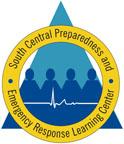
Environmental Health and Shelters
Course Description:
This course was developed by Captain Mark D. Miller, MPH, RS, USPHS (Retired). The content of this course is taken from a series of lectures that Captain Miller and his colleagues deliver around the country as a package of Environmental Health Training in Emergency Response. The lectures in this course focus on teaching environmental health specialists how they can apply their knowledge of everyday environmental health problems to dealing with environmental health issues that arise in the creation of mass shelters that may follow a major disaster. By the end of this course, the student should be able to describe key environmental health issues and the roles of environmental health professionals in shelter operations.
Target Audience
Academic Faculty/Staff, Federal Government Employees, State Government Employees, Local Government Employees, Non-Government Employees and Students
Learning Objectives
- Describe the role of Environmental Health professionals in mass shelter operations
- Identify the lead organizers of mass shelters
- Describe the role of Emergency Support Functions in the development and maintenance of shelter operations
- Describe the different types or classes of shelters
- Identify the standards that must be met for a site to be designated as a shelter facility
- List the components of a SanPac and discuss the underlying assumptions for its use
- Describe when and how to use a spill kit for bodily fluid clean-up
- Discuss the sanitation and housekeeping procedures that are unique to child care and food preparation/distribution facilities within a mass shelter
- Indicate the staffing recommendations for EH personnel at a shelter
- Describe the components of a shelter assessment tool
- Describe the unique considerations in sheltering special needs populations
- List measures to prevent outbreaks in shelters
- List special considerations for maintaining pets in shelters
- Discuss options for pet sheltering and the pros and cons of each
- Discuss the types of information that need to be communicated to the residents of a shelter, and the best means to do so
Instructor:

Captain Mark D. Miller, MPH, RS, USPHS (Retired)
Captain Mark D. Miller, MPH, RS, USPHS (Retired) received a Bachelor of Science in Environmental Health from East Central University, Ada, Oklahoma in 1984 and a Master of Public Health degree from the University of Texas Health Science Center at Houston in 1993. He began his career in 1985 in wastewater treatment for Oklahoma City. In 1988, he accepted a commission with the United States Public Health Service (USPHS) and served 26 years until his retirement in 2014. He currently serves as a private consultant, concentrating on environmental health training and development.
During his USPHS career, Captain Miller was assigned to various positions throughout the nation with the Indian Health Service, the Agency for Toxic Substances and Disease Registry, and the Centers for Disease Control and Prevention (CDC).
Captain Miller served as a Senior Environmental Health Scientist for the Environmental Health Services Branch of the CDC National Center for Environmental Health in Atlanta, Georgia. His duties included assistance and consultation to local, state, and tribal professionals and national organizations on issues related to environmental health, terrorism, and emergency response. He responded to numerous outbreaks of environmental-related disease, public health crises and natural disasters. He served as technical advisor for several national committees on issues related to environmental health, terrorism and emergency preparedness. He is the original founder and developer of CDC’s highly successful Environmental Health Training in Emergency Response (EHTER) program and developed EHSB’s informational website on terrorism and emergency preparedness specifically for environmental health professionals.
Available Credit
- 3.00 Participation/CETulane Professional and Continuing Education (PaCE) awards 3.00 hour(s) of credit for completing Environmental Health and Shelters
Price
Required Hardware/software
System Settings
This course is designed to work most effectively if your computer and internet connection meet certain minimal requirements. This course can be accessed using a Windows 10 PC or a Mac with High Sierra1, Mojave, or Catalina. Pop-up blockers should be disabled when viewing the course. Internet Explorer 11 (for Windows 10), or the current version of Google Chrome, Mozilla Firefox, or Apple Safari (for Windows 10 and or Mac) is required. Many of our courses require Java and JavaScript enabled.
Links to External Websites
Links to websites outside this course will open in a new window or tab. Some browsers may minimize the course window. If this occurs, maximize the course window to return to the course.
Adobe Acrobat Reader (for desktops and laptops)
Adobe Acrobat Reader is required to access some documents in this course. If you need to download a free copy of Acrobat Reader, click here.
Internet Connection Speed
A minimum download speed of 1.5 Mbps is recommended for an optimal experience, which is commonly the speed associated with a basic DSL or a cellular/satellite connection. A faster connection, such as cable or fiber service, with further enhance your online experience. A Wi-Fi connection is generally acceptable, but it is dependent upon one of the two services mentioned above. You can check your internet connection speed at http://www.speedtest.net/.

 Facebook
Facebook X
X LinkedIn
LinkedIn Forward
Forward